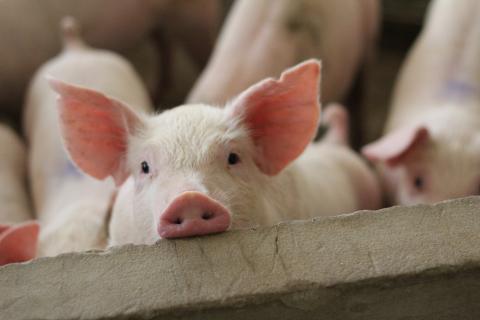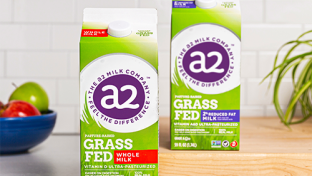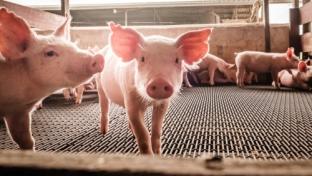Which Grocers Score Highest for Animal Welfare Commitments?

Sprouts Farmers Market and Whole Foods Market were singled out for their respective animal welfare policies and progress in a recent assessment from The American Society for the Prevention of Cruelty to Animals (ASPCA). According to the ASPCA Supermarket Scorecard, those natural grocers came out on top for their specific commitments to animal welfare, scoring an “A” on the grading scale.
This is the first grocery report card from ASPCA. The inaugural project gauged the nation’s top food retailers’ work to eliminate farm animal confinement, focusing on broiler chickens, egg-laying hens and pregnant pigs.
[Read more: “SPECIAL REPORT: The Greener Grocer”]
“Supermarkets have immense influence over what we eat and how animals are treated. Consumers overwhelmingly reject cruelty to farm animals and want to know where their supermarket stands on these basic but critical welfare issues,” said Nancy Roulston, senior director of corporate policy and an animal scientist at ASPCA. “The ASPCA is working with some of the largest supermarket chains to help them swiftly adopt and progress on strong welfare policies. It’s time for retailers of all kinds to address unacceptable practices in their supply chains — to protect animals, support farmers using higher-welfare practices, and align their brands with the compassionate food system consumers demand.”
Brandon Lombardi, chief sustainability officer at Sprouts, reiterated the company’s support of animal welfare practices. “At Sprouts, improving animal welfare is an ongoing process that is a fundamental part of our responsible sourcing efforts. It is important to our customers and is the right thing to do. We are proud to be leading in transparency as we continue to make progress on our animal welfare commitments,” he said.
Added Karen Christensen, SVP, merchandising for perishables and quality standards for Whole Foods Market: “Since we first opened our doors over 40 years ago, we’ve continued to raise the bar on our quality standards, including our commitment to animal welfare as part of our higher purpose to nourish people and the planet. We’re proud to be recognized by the ASPCA for our commitment to continuous improvement in agriculture and animal welfare and providing the transparency customers want in understanding how animals are raised.”
Costco Wholesale followed Sprouts and Whole Foods on the scorecard, earning a B mark. Target, Safeway, Albertsons, Food Lion, Stop & Shop and Kroger banners were given a C grade. Five retailers – Grocery Outlet, Piggly Wiggly, Save A Lot, Trader Joe’s and Winn-Dixie – came out with zero points, based on ASPCA’s determination that none of them had animal welfare policies pertaining to cage-free eggs, gestation crate-free pork and alignment with the Better Chicken Commitment.
ASPCA contends that while many major grocers have shared policies to take steps to eliminate confinement, some have “stalled” in fulfilling their pledges and others have not specifically mentioned farm animal treatment. At the conclusion of the report, the organization shared a note to supermarket executives, declaring that future scorecards will reassess how top grocers can improve their policies towards hens, broilers and pigs in the food supply chain and also expand to cover more grocery chains, additional animal welfare issues and stores’ portfolios of welfare-certified products.
“Ultimately, this annual resource will evolve to assess supermarkets’ dedication to farm animal welfare, and to meet consumers’ growing demand for products that align with their deep concern for animals. We are committed to working with the supermarket sector to help companies seize on this powerful opportunity — and unique responsibility — to build a more compassionate food system,” the analysts wrote.
Phoenix-based Sprouts Farmers Market employs approximately 31,000 associates and operates almost 400 stores in 23 states nationwide. The company is No. 51 on The PG 100, Progressive Grocer’s 2023 list of the top food and consumables retailers in North America.The first certified-organic national grocer, Austin, Texas-based Whole Foods has more than 500 stores in the United States, Canada and the United Kingdom. The company is a wholly owned subsidiary of Seattle-based Amazon, which is No. 2 on The PG 100.







